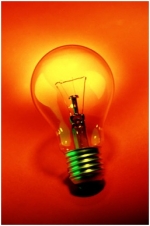 May 2, 2011 (Washington D.C.) – Backcountry residents in San Diego County have repeatedly been advised to purchase generators if they are concerned over power shut-downs proposed by San Diego Gas & Electric Company during times of high fire danger. But on Friday, the U.S. Consumer Product Safety Commission issued a press release in the wake of power outages in southern states hit by tornadoes and heavy storms. The CPSC warns residents of “deadly dangers associated with using portable generators.”
May 2, 2011 (Washington D.C.) – Backcountry residents in San Diego County have repeatedly been advised to purchase generators if they are concerned over power shut-downs proposed by San Diego Gas & Electric Company during times of high fire danger. But on Friday, the U.S. Consumer Product Safety Commission issued a press release in the wake of power outages in southern states hit by tornadoes and heavy storms. The CPSC warns residents of “deadly dangers associated with using portable generators.”
Those dangers include death from carbon monoxide poisoning, as well as risks of electrocution and fire hazards.
Carbon monoxide from generators resulted in at least 43 deaths in 2009 alone, the CPSC reports, adding, “CPSC strongly warns consumers to never use a generator indoors - including garages, basements, crawlspaces and sheds - even with ventilation. Exhaust fumes contain extremely high levels of carbon monoxide (CO) which can rapidly become deadly if inhaled.”
Consumers should only use a portable generator outdoors in a dry area away from any doors, windows and vents that could allow CO to come indoors, the CPSC advises. “Wait for the rain to pass before using a generator, as consumer-grade generators are not weatherproof and can cause electrocution and shock when used in wet conditions.”
Additional lifesaving safety tips from CPSC include:
If you start to feel sick, dizzy or weak while using a generator, get to fresh air right away. The CO from generators can quickly lead to full incapacitation and death.
Do not connect the generator directly into your home's electrical system through an electrical outlet - this is an extremely dangerous practice that poses a fire hazard and an electrocution hazard to utility workers and neighbors served by the same transformer.
If using a generator, plug individual appliances into heavy duty, outdoor-rated extension cords and plug cords into the generator.
Check that the extension cords have a wire gauge adequate for the appliance loads and have all three prongs, including a grounding pin.
Keep charcoal grills outside. Never use them indoors. Burning charcoal in an enclosed space can produce lethal levels of carbon monoxide.
Check to make sure your smoke alarms and carbon monoxide alarms have batteries and are working.
For more information, go to http://www.cpsc.gov/info/co/index.html










Comments
An more
Then there are those people who try to hookup their generator to the house wiring, back feed electricity to the grid, and injure or kill utility workers who are trying to restore power. There really needs to be a test before you are allowed to by a generator or a BBQ pit!